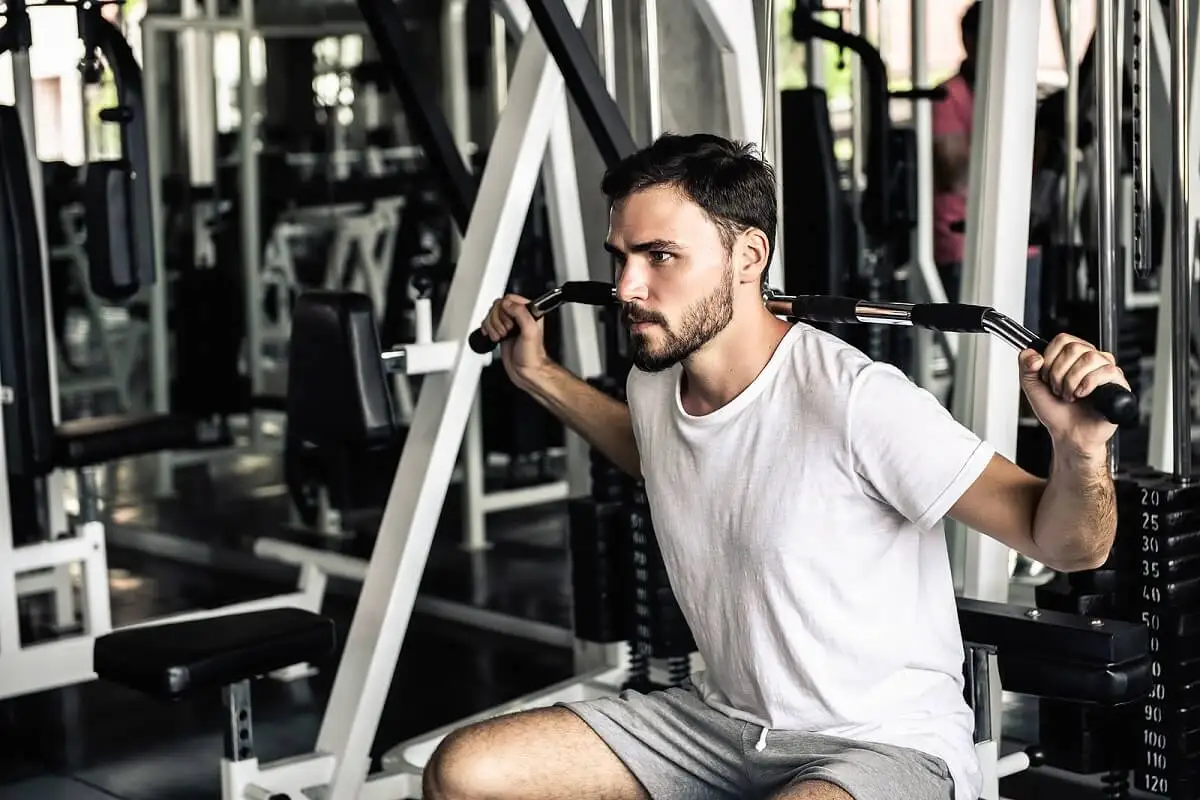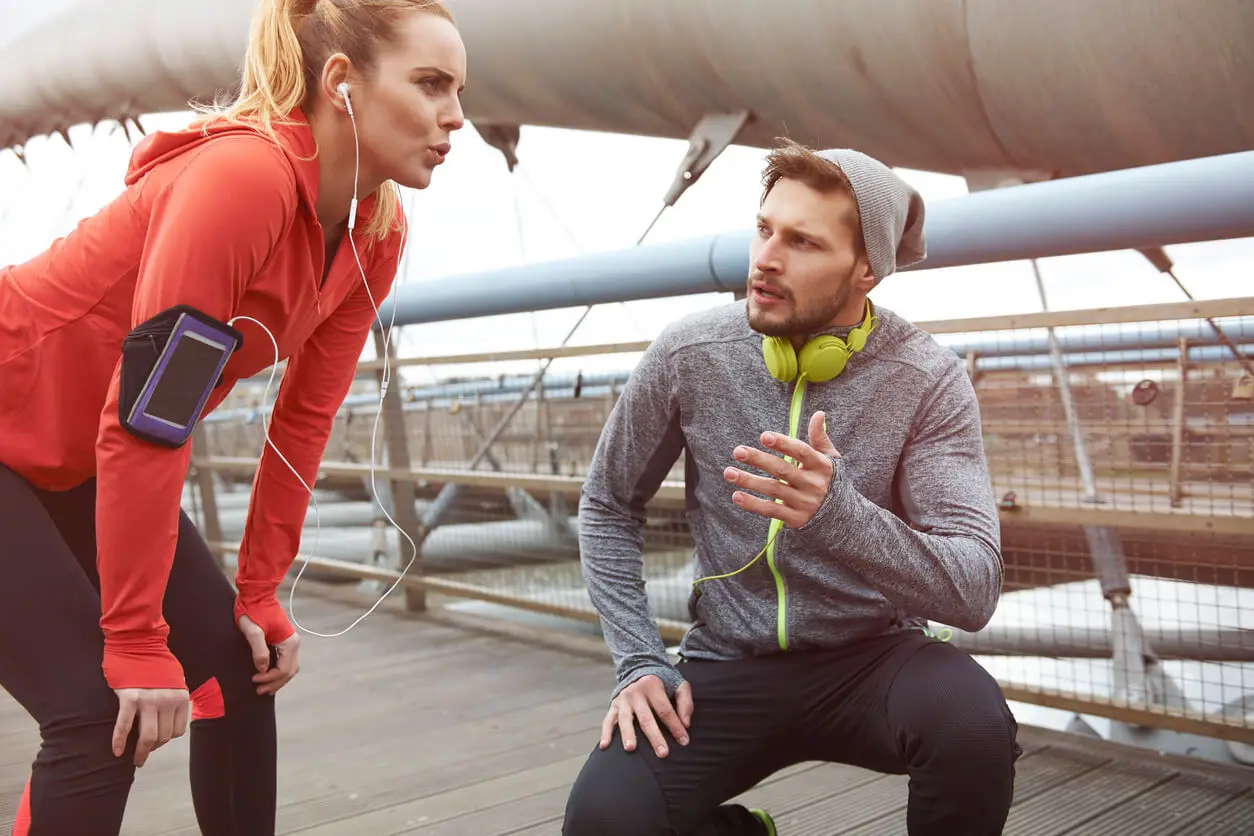5 Mental Tricks to Improve Sports Performance


Reviewed and approved by the nurse Leidy Mora Molina
Generally, when we engage in athletic activity, we all reach a point of exhaustion and can’t wait to go home for the day. However, that fatigue is sometimes mental, and we can change the chip to make a little more effort. In this opportunity, well take a look at 5 mental tricks to improve sports performance.
As the center of the nervous system, the brain is the organ that sends orders and controls almost all the processes of the body and mind. It’s linked to productivity and directly affects our performance in any activity, both in our everyday lives and in sports.
Using the mind in our favor is crucial to achieving goals or achieving success in sports. It predisposes us in a good way and helps us to focus on objectives, which will lead us to discover our ability to excel and achieve much more than we thought.
Mental strength is key in physical activity
Psychological strength is fundamental in sports performance. It’s not only about elite athletes. In reality, anyone who carries out a sports practice and seeks to improve themselves must have conviction, perseverance, and positive thoughts to achieve their goals.
Let’s take a look at some important aspects that we must take into account to use the mind in favor and improve our performance.
- Self-confidence: Having good self-esteem is a determining factor. Self-confidence will help us to achieve our best performance. Moreover, it’s key to be able to maintain it and not lose it even in adverse moments. For example, a study called “Salivary oxytocin, cognitive anxiety, and self-confidence in pre-competitive athletes” that was done on 56 young soccer players determined that the winners had significantly lower cognitive anxiety scores and higher self-confidence scores than the losers.
- Be persistent: Never give up, but try again and again until you reach your goal. Think positively and try new techniques or strategies.
- Overcoming frustration: An athlete’s environment is very important in this aspect, as well as his or her personality. Their family environment, the contribution of a good trainer, and the help of a psychologist can all be decisive for their success. If we have a healthy level of self-criticism about our performance, it’s more likely that we can overcome ourselves and achieve success.
- Manage emotions: Anger or frustration will only hinder the chances of achieving a goal, as it will affect concentration and performance. Athletes need positive thoughts to excel and reach their peak performance.
- To have fun: Finally, to be successful or to obtain benefits from practice are common goals for athletes, but they can be detrimental if we want to achieve them at any cost. The first motive for taking up a discipline should be to have a good time and have fun, especially when it comes to children. If that motivation is lost, we’re likely to abandon the activity – or, at the very least, not reach our peak performance.

Like this article? You may also like to read: Kylian Mbappé: The Rigorous Exercise and Diet Routine of Soccer’s Next Big Star
5 mental tricks that can boost sports performance
Practicing sports helps to stimulate the brain. Training and competition provide better oxygenation of neuronal connections. This allows us to renew ideas, achieve better concentration, and bring the brain to the maximum of its capabilities. Consequently, as well as a feedback effect, we can use it to our advantage to improve our athletic abilities.
In fact, a paper entitled “How does sport psychology really improve sport performance?” states the following:
“Few within the realm of competitive athletics would dispute the importance of being mentally prepared before an athletic competition, as well as the need to maintain that particular mindset during a competition.”
In addition to the above, it adds that mental skills training translates into better sports performance, but that “many athletes, coaches, and sports administrators are still quite reluctant to seek the services of a qualified sports psychologist, even if they believe it could help.”
So, what are these 5 mental tricks to boost sports performance?
1. Motivate ourselves
We have to prepare our minds in the best way to face exercise. We must focus on the fact that we can do it and clear the negative thoughts that predispose us in a bad way.
2. Think about doing just one more repetition
This is all just about predisposing the brain to do one more repetition than the ones we usually do. For example, if we’re going to perform 10 push-ups, try to mentalize that we’ll complete 11.
If there’s a conviction to make an effort more than the stipulated effort in our heads, it’ll be easier to complete the set.
3. Exceed twice the number of repetitions
This consists of starting to do an exercise without setting a number of repetitions. When we carry a certain amount and we feel that we could be in the middle of the set, we have to mentalize ourselves to double that number.
The idea here is that the brain is predisposed to have extra energy to achieve the goal. For example, if we do jumping burpees and after the first 5 we think we’ll get to 10, then we should predispose ourselves to be able to get to 15.
4. Imagine that the load is lighter
With this strategy, we can facilitate the exercise and lift with less effort the real weight of the load. This is ideal for when we’re going to lift the maximum weight, known as 1RM or repetition maximum. For example, if we’re going to perform dead weights with a load of 100 kilos, we should predispose ourselves that we’re going to lift 90.
5. Use the final reward as a stimulus
There always comes a point when we’re exhausted and we can’t wait to finish the day. According to our predisposition, this usually happens just in the last minutes or in the final exercise, in which we have to make the final effort.
The key is to clear the thought of tiredness and focus on finishing to have the reward. For example, focus on the hot shower when you get home or knowing that you’re giving your all to achieve your desired figure.

We think you may be interested in reading this, too: Trent Alexander-Arnold: The Vision at the Heart of His Training Sessions
Surpassing yourself is the key
Surpassing our performance in any activity is a synonym for motivation and a starting point to continue improving our qualities. It has been demonstrated that mental capacity applied to sport is as important as skill, technique, and strategy to achieve the objectives.
Both at a professional and amateur level, good predisposition, self-confidence, and perseverance are key aspects to improve. Plus, the key to having them is entirely in our minds. It’s time to change the chip and work on cognitive control to achieve the best performance.
All cited sources were thoroughly reviewed by our team to ensure their quality, reliability, currency, and validity. The bibliography of this article was considered reliable and of academic or scientific accuracy.
- La Fratta I, Franceschelli S, Speranza L, Patruno A, Michetti C, D’Ercole P, Ballerini P, Grilli A, Pesce M. Salivary oxytocin, cognitive anxiety and self-confidence in pre-competition athletes. Sci Rep. 2021 Aug 19;11(1):16877. doi: 10.1038/s41598-021-96392-7. PMID: 34413428; PMCID: PMC8376920. Disponible en: https://pubmed.ncbi.nlm.nih.gov/34413428/
- Gee CJ. How does sport psychology actually improve athletic performance? A framework to facilitate athletes’ and coaches’ understanding. Behav Modif. 2010 Sep;34(5):386-402. doi: 10.1177/0145445510383525. PMID: 20935240. Disponible en: https://pubmed.ncbi.nlm.nih.gov/20935240/
This text is provided for informational purposes only and does not replace consultation with a professional. If in doubt, consult your specialist.








